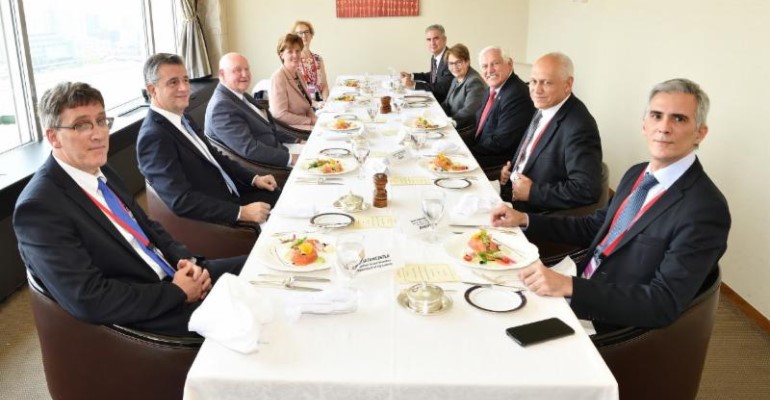Western Hemisphere ag leaders confirm safety of biotechnology and call for changes on low-level presence occurrences of biotech events.

Western Hemisphere agricultural leaders met May 12 on the sidelines of the G20 Agricultural Ministerial in Niigata, Japan, affirming their intent to work together to champion global food security and agricultural trade on the basis of sound science and risk analysis principles.
Following the meeting, top agricultural officials from Argentina, Brazil, Canada, Mexico and the U.S. issued a statement highlighting that food demand is rising while agricultural production faces significant constraints, such as limited access to arable land and fresh water. In this regard, they agreed that agricultural innovation such as biotechnology, including precision biotechnology, will continue to play a substantial role in addressing such challenges and can improve farmers’ productivity in a safe and sustainable manner.
“As Western Hemisphere agricultural leaders, we affirm our intent to work together to champion global agricultural trade based on sound science and risk analysis principles. We also affirm our intent to allow farmers and ranchers access to the tools needed to: increase productivity, reduce food loss and waste, protect soil, water and biodiversity and produce safe, nutritious, affordable food products year-round, to the benefit of the world population,” the joint statement noted.
These ministers recognized that the number of biotech crops being developed and cultivated worldwide is increasing annually. Yet, despite two decades of experience in the safe use of these products, regulatory processes in many jurisdictions create time gaps in their authorization. “This leads to an increasing risk of trade disruptions resulting from occurrences of low-level presence (LLP) of biotechnology crops that are approved in growing countries but not yet approved in importing countries,” the ministers said in a joint statement.
LLP occurs when a small amount of a biotech crop that has been assessed as safe in one or more countries according to international standards is unintentionally present in a shipment to a country where the product has not yet been approved. This may lead to unnecessary trade disruptions, which can affect food security, prices and attitudes toward innovation in both the exporting and importing countries.
“The extent of unnecessary asynchronous product approvals worldwide is increasing and requires further actions to address the risk of trade disruption, avoid its negative effects to importing and exporting countries alike and promote global food security,” the trade ministers added.
For this purpose, the ministers of agriculture from Argentina, Brazil, Canada and the U.S. said they will commit to heighten collaborative work with third-party countries in 2019 and will continue advocating for global approaches for the management of LLP that are practical, science based, predictable and transparent. These efforts will include the universal use of international science-based guidelines.
“Together, we stand to work in partnership -- and jointly with additional countries -- to support regulatory approaches that are risk and science based, predictable, consistent and transparent. Our five nations recognize that innovations in the agriculture sector contribute to improved productivity, including by smallholder and young farmers and rural women, in a safe and sustainable manner and to our countries’ ability to meet the ever-growing global demand for food. With the world’s population projected to reach 9.8 billion by 2050, science and innovation will play a key role in enabling agriculture producers to safely feed everyone,” the ministers added.
Participating in the meeting were: Argentina's Secretary of Agroindustry Luis Miguel Etchevehere; Brazil's Minister of Agriculture, Livestock & Food Supply Tereza Cristina Dias; Canada's Minister of Agriculture & Agri-Food Marie-Claude Bibeau; Mexico's Secretary of Agriculture & Rural Development Victor Villalobos, and U.S. Secretary of Agriculture Sonny Perdue.
About the Author(s)
You May Also Like





